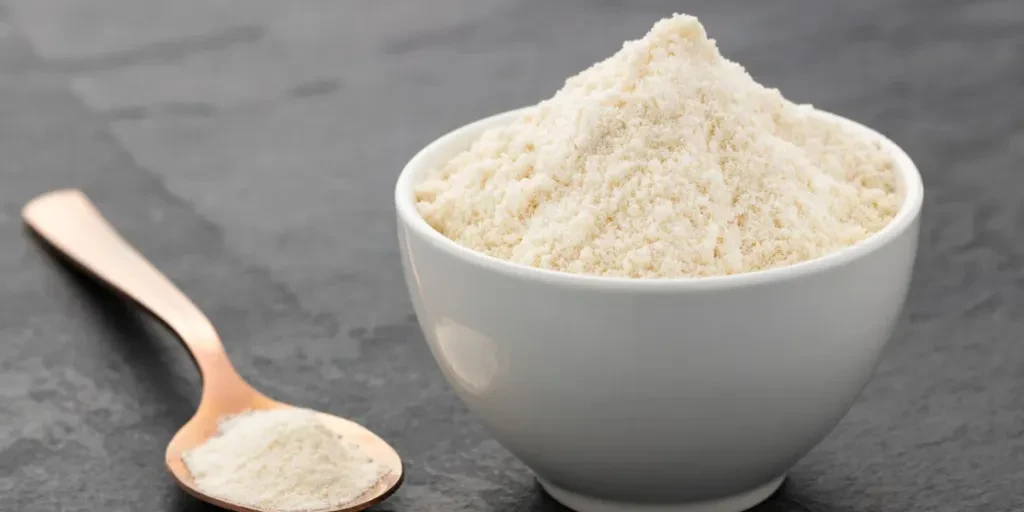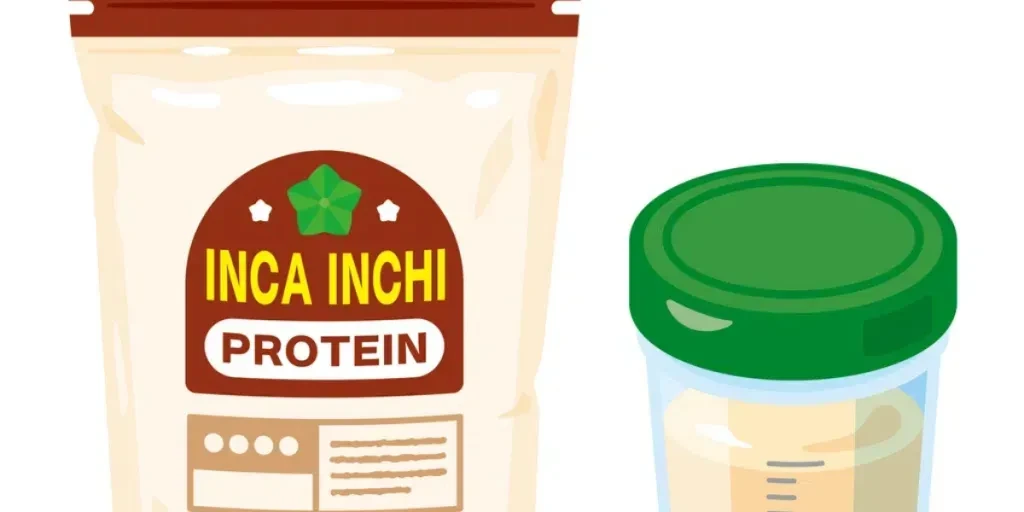Clean protein is revolutionizing the sports and accessory industry by offering a sustainable and healthy alternative to traditional protein sources. As consumers become more health-conscious and environmentally aware, the demand for clean protein continues to rise. This article delves into the market overview of clean protein, highlighting its growth, key players, and future trends.
Table of Contents:
– Market Overview of Clean Protein
– Innovative Materials in Clean Protein
– Design and Functionality of Clean Protein Products
– Technological Advancements in Clean Protein Production
– Benefits and Performance of Clean Protein
Market Overview of Clean Protein

The clean protein market is experiencing significant growth, driven by increasing consumer awareness about health and sustainability. According to a report by WGSN, the global clean protein market is expected to reach $15.6 billion by 2027, growing at a compound annual growth rate (CAGR) of 7.4% from 2020 to 2027. This growth is fueled by the rising demand for plant-based and animal-based clean protein products.
Data of Market Performance
The clean protein market has shown remarkable performance in recent years. In 2023, the market size was valued at $10.2 billion, with North America accounting for the largest share. The region’s dominance is attributed to the high adoption of clean protein products among health-conscious consumers and the presence of key market players. Europe and Asia-Pacific are also witnessing substantial growth, with increasing investments in clean protein production and rising consumer awareness.
Regional Insights
North America leads the clean protein market, followed by Europe and Asia-Pacific. In the US, the demand for clean protein is driven by the growing popularity of plant-based diets and the increasing number of fitness enthusiasts. According to a report by Whole Foods, the US market for plant-based protein is expected to grow by 11% annually, reaching $5 billion by 2025. In Europe, the market is driven by the rising trend of veganism and the increasing focus on sustainability. Countries like Germany, the UK, and France are at the forefront of this trend, with a growing number of consumers opting for clean protein products.
Key Players
Several key players dominate the clean protein market, including Beyond Meat, Impossible Foods, and Tyson Foods. Beyond Meat and Impossible Foods are leading the plant-based protein segment, with innovative products that mimic the taste and texture of meat. Tyson Foods, on the other hand, is focusing on both plant-based and animal-based clean protein products. These companies are investing heavily in research and development to enhance the quality and variety of their offerings.
Future Trends
The future of the clean protein market looks promising, with several trends shaping its growth. One of the key trends is the increasing focus on sustainability. Consumers are becoming more aware of the environmental impact of traditional protein sources and are opting for clean protein as a sustainable alternative. Another trend is the growing popularity of personalized nutrition. Companies are developing clean protein products tailored to individual dietary needs and preferences, offering a more personalized and effective approach to nutrition.
Brands Comparison
When comparing brands, Beyond Meat and Impossible Foods stand out for their innovative plant-based products. Beyond Meat’s products are known for their high protein content and realistic meat-like texture, while Impossible Foods’ products are praised for their taste and versatility. Tyson Foods, on the other hand, offers a wide range of clean protein products, including both plant-based and animal-based options. The company’s commitment to sustainability and quality has made it a key player in the market.
Sustainability
Sustainability is a major driving force in the clean protein market. Companies are adopting sustainable practices in their production processes, from sourcing raw materials to packaging. For instance, Beyond Meat uses pea protein, which requires less water and land compared to traditional protein sources. Similarly, Tyson Foods is investing in sustainable farming practices and reducing its carbon footprint. These efforts are not only beneficial for the environment but also resonate with consumers who prioritize sustainability in their purchasing decisions.
Innovative Materials in Clean Protein

Plant-Based Proteins: A Sustainable Choice
The sports and accessory industry is increasingly turning to plant-based proteins as a sustainable alternative to traditional animal-based proteins. Plant-based proteins, derived from sources such as peas, soy, and hemp, offer a lower environmental impact compared to animal-based proteins. They require less water, land, and energy to produce, making them a more eco-friendly option. Additionally, plant-based proteins are often free from common allergens and are suitable for a variety of dietary preferences, including vegan and vegetarian diets.
According to a professional report, the demand for plant-based proteins is on the rise, driven by consumers’ growing awareness of environmental issues and their desire for healthier, more sustainable food options. This trend is reflected in the increasing number of plant-based protein products available on the market, from protein powders and bars to ready-to-drink shakes and snacks.
Animal-Based Proteins: Quality and Purity
While plant-based proteins are gaining popularity, animal-based proteins continue to be a staple in the sports and accessory industry due to their high-quality amino acid profiles and superior bioavailability. Animal-based proteins, such as whey and casein, are known for their ability to support muscle growth and recovery, making them a preferred choice for athletes and fitness enthusiasts.
The focus on quality and purity in animal-based protein products is paramount. Brands are increasingly transparent about their sourcing and production practices, ensuring that their products are free from harmful additives and contaminants. For instance, many companies are now using grass-fed and hormone-free sources for their protein powders, which not only enhances the nutritional value but also aligns with consumers’ demand for cleaner, more natural products.
Design and Functionality of Clean Protein Products

Convenient Packaging for On-the-Go Consumption
In today’s fast-paced world, convenience is a key factor driving the design and functionality of clean protein products. Consumers are looking for products that fit seamlessly into their busy lifestyles, and brands are responding with innovative packaging solutions. Single-serve packets, ready-to-drink bottles, and portable bars are just a few examples of how clean protein products are being designed for on-the-go consumption.
According to a report by Euromonitor International, the trend towards convenient packaging is particularly evident in the sports nutrition market, where consumers prioritize ease of use and portability. This shift is also reflected in the increasing popularity of meal replacement shakes and protein snacks, which offer a quick and convenient way to meet daily protein needs.
Versatile Applications in Various Diets
Clean protein products are not only designed for convenience but also for versatility. They can be easily incorporated into a wide range of diets, from ketogenic and paleo to vegan and gluten-free. This versatility makes clean protein products an attractive option for consumers with diverse dietary preferences and restrictions.
For example, plant-based protein powders can be used in smoothies, baked goods, and even savory dishes, providing a flexible and nutritious addition to any meal. Similarly, animal-based protein products, such as collagen peptides, can be added to coffee, soups, and sauces, offering a convenient way to boost protein intake without altering the taste or texture of the food.
Technological Advancements in Clean Protein Production

Fermentation Technology: A Game Changer
One of the most significant technological advancements in clean protein production is the use of fermentation technology. This innovative approach involves using microorganisms to produce high-quality proteins in a controlled environment. Fermentation technology not only enhances the efficiency and scalability of protein production but also reduces the environmental impact.
Fermentation technology has the potential to revolutionize the clean protein market by providing a sustainable and cost-effective alternative to traditional protein sources. Companies like Perfect Day and Clara Foods are already leveraging this technology to produce animal-free dairy and egg proteins, respectively, demonstrating the vast potential of fermentation in the clean protein industry.
Precision Fermentation: Enhancing Protein Quality
Building on the success of fermentation technology, precision fermentation takes it a step further by using advanced techniques to enhance the quality and functionality of proteins. Precision fermentation allows for the production of proteins with specific characteristics, such as improved solubility, stability, and nutritional profile.
This technology is particularly valuable in the sports and accessory industry, where the demand for high-performance protein products is high. By using precision fermentation, companies can create customized protein blends that meet the unique needs of athletes and fitness enthusiasts, offering enhanced muscle recovery, endurance, and overall performance.
Benefits and Performance of Clean Protein

Health Benefits: Beyond Muscle Building
Clean protein products offer a wide range of health benefits that go beyond muscle building. They are rich in essential amino acids, vitamins, and minerals, making them a valuable addition to any diet. Clean proteins can support weight management, improve metabolic health, and enhance immune function.
Clean protein products are also beneficial for gut health, as they are often free from artificial additives and allergens that can cause digestive issues. This makes them a suitable option for individuals with sensitive stomachs or food intolerances.
Performance Enhancement for Athletes
For athletes, clean protein products are an essential part of their nutrition regimen. They provide the necessary building blocks for muscle repair and growth, helping athletes recover faster and perform better. Clean proteins are also known for their ability to enhance endurance and reduce fatigue, making them a valuable tool for both amateur and professional athletes.
Athletes who consume clean protein products experience significant improvements in strength, power, and overall performance. This underscores the importance of clean protein in supporting athletic goals and optimizing physical performance.
Conclusion
The clean protein market is evolving rapidly, driven by technological advancements, consumer demand for sustainability, and the need for high-quality, versatile protein sources. As the industry continues to innovate, the future of clean protein looks promising, with new products and technologies set to transform the way we consume and benefit from protein. For businesses in the sports and accessory industry, staying ahead of these trends and embracing clean protein solutions will be key to meeting the needs of modern consumers and achieving long-term success.




